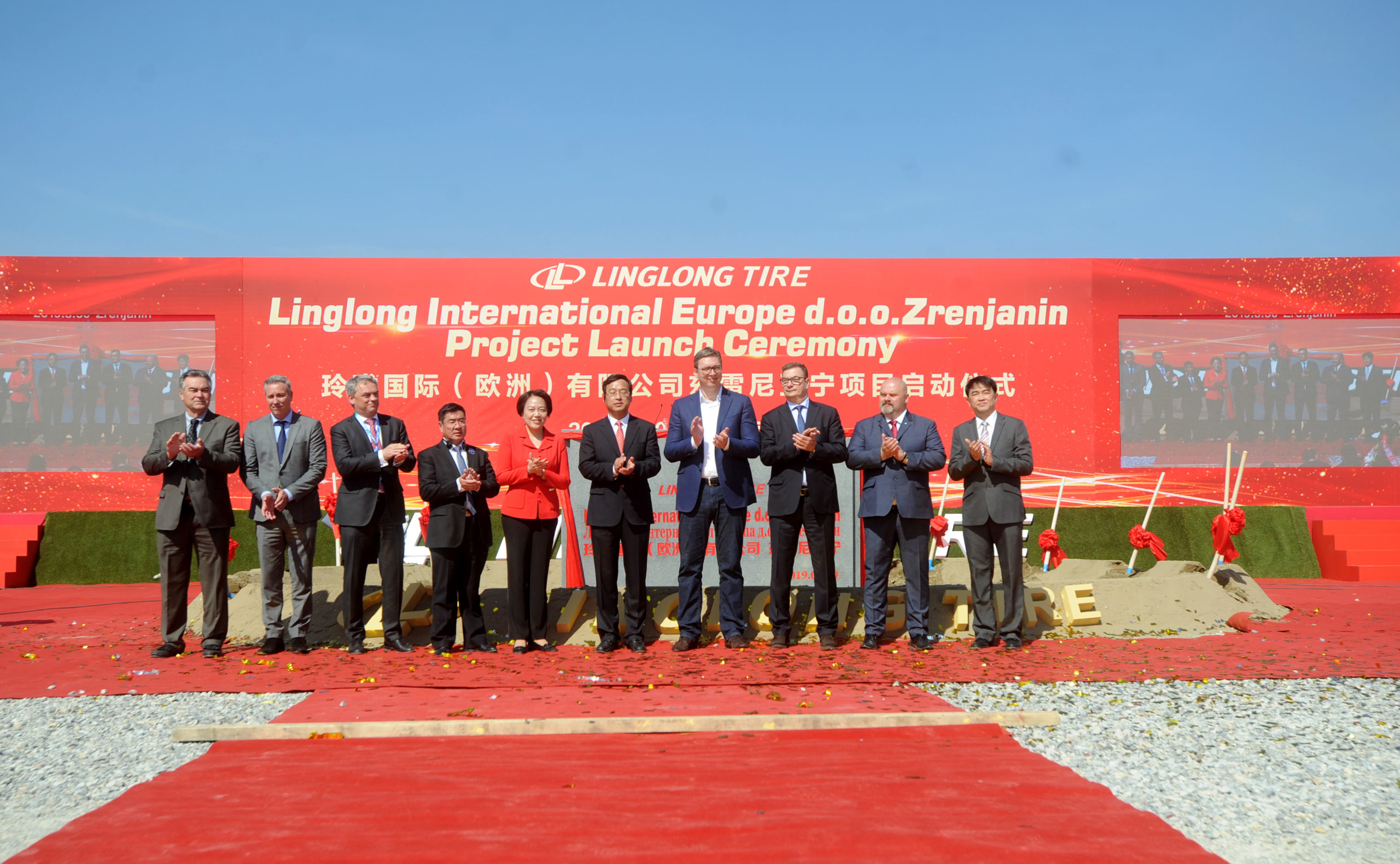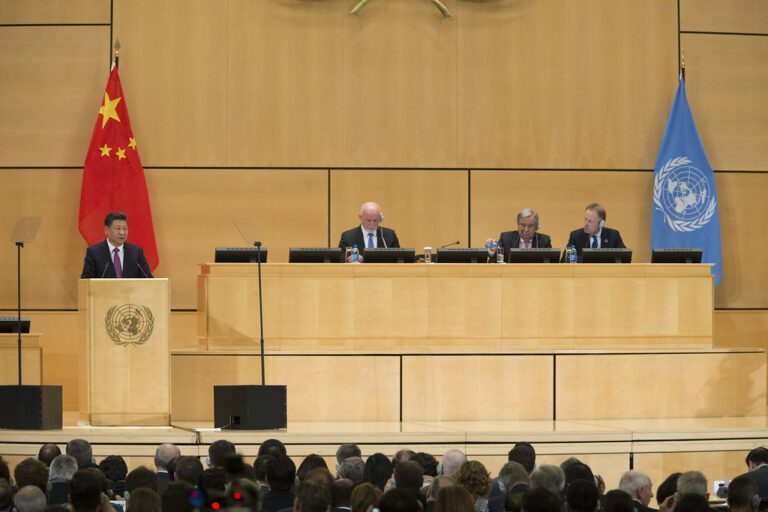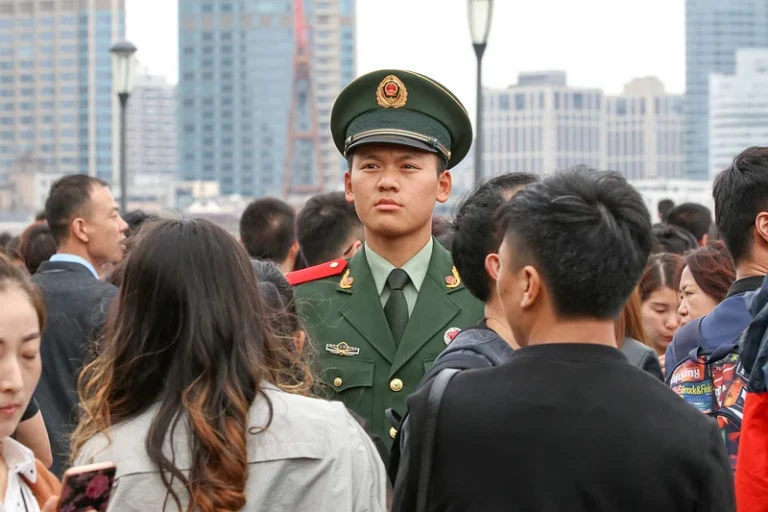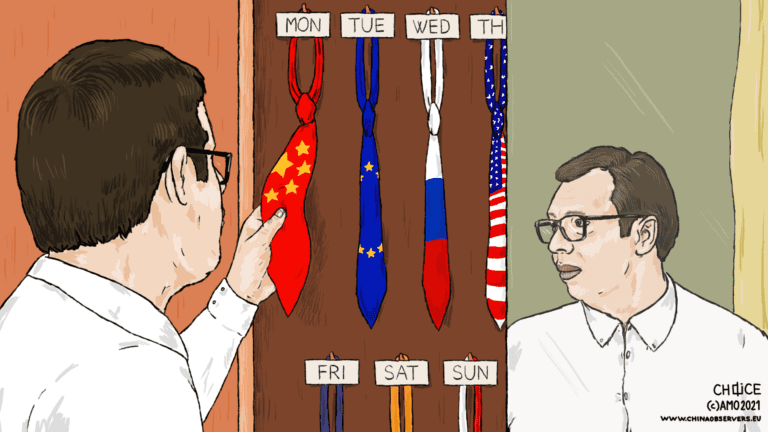
Vietnamese workers employed by the Chinese firm Linglong Tire in Serbia were living in conditions that have understandably shocked onlookers.
Accommodated in old, rusty barracks, not outfitted for a chilly Balkan winter, the employees were left without winter clothes in November and without money to remedy their situation. The workers further claimed that their Chinese employer had taken their passports, preventing them from escaping their predicament as they found themselves, in their own words, worse off in Serbia than they were at home in Vietnam.
Without the prompt action from the civil society activists, this outrageous situation would be unknown to the public and would have been likely to continue unabated. In total, the events that unraveled at the factory reveal glaring issues in the governance and regulation of Chinese firms breaking ground under Belgrade’s less-than-watchful eye.
An Auspicious Opening
When the construction of the Shandong Linglong vehicle tire factory in Zrenjanin was announced in August 2018, it was hailed as China’s largest greenfield investment in Serbia, totaling nearly $1 billion.
The factory is but one of China’s many investments in the country as China has become a significant actor in Serbia. The East Asian nation has moved strongly into Serbia primarily through preferential loan agreements for infrastructural projects, and foreign direct investments. In total, these investments have grown to more than $2 billion over the past ten years, according to the data provided by the Serbian National Bank.
More than three years later, the public’s attention has returned to the Chinese company in Zrenjanin. However, the reception at present is far less rosy. Serious issues related to the violation of workers’ rights and the inhumane living conditions of Vietnamese construction workers employed in the construction of the factory have shown how Chinese companies often skirt local laws.
A Checkered Track Record
While the latest row is likely the highest-profile, it is by no means the first issue involving the Linglong factory in Serbia.
In 2020, a Serbian NGO named Renewables and Environmental Regulatory Institute pointed out that some of the objects under construction at the Linglong plant are being built without an appropriate construction permit. Moreover, the construction of the facilities went on without the proper environmental study and clearance, indicating a pattern of violations and flaunting of standard protocols.
In fact, clear indications about the impact of the factory on the local environment were not revealed to the public at all. In February of 2021, when the study was supposed to be presented at the public debate, the police forces limited the participation of the media representatives and civil society organizations that had expressed concerns about the published study.
The impact that the Chinese company will have on the environment after the construction is finalized is an especially important issue. This question has been raised in consideration of the numerous other Chinese companies that have had quite a long history of negative consequences for Serbia’s local ecosystem.
The concerns expressed in Zrenjanin have mirrored those brought up in the cases of the Chinese-owned Zijin mining company and Smederevo steel mill, where major air and land pollution also courted activist attention. These concerns have only been exacerbated by the opaque process by which the environmental impact study was conducted and adopted.
Finally, the Linglong approach to communicating the issues raised is problematic. The company hired a private security company, which prevented media representatives from entering the premises and even from filming on publicly accessible sites near the factory.
Zooming in on Zrenjanin
Recently, the situation on Linglong’s Zrenjanin project has escalated to a fever pitch.
The heightened attention came to a head after the regional cable news Channel N1 broadcast a report on November 12 about the inhumane living conditions of 500 Vietnamese workers employed in the construction of the Linglong facilities. Vietnamese workers who were willing to speak with the media crew said that they are living without electricity, water, without proper accommodation and that their documents (passports) were taken from them.
The exploited laborers have been employed by the TEPC (China Energy Engineering Group Tianjin Electric Power Construction Co), a subcontractor on the construction of the Linglong factory. The shocking discovery was quickly characterized as possible human trafficking by Mario Reljanović, a Serbian labor law expert because it looked like workers have been deceived and that their contract has been violated, with them stripped of their basic rights and even of their personal documents.
The news also prompted action by the civil society organizations Inicijativa A11 and ASTRA – Anti Trafficking Action, each of whom visited the compound where the Vietnamese workers were settled and confirmed the media reports about the dire living conditions. They further demanded a speedy and firm reaction from the Serbian authorities in resolving this issue.
Muted Backlash from Belgrade
While the activists may have hoped for a quick and harsh reaction from the state against such abuses, instead they were met with a forceful reaction from the private security employed by Linglong. The security service quickly emerged from the factory to block the compound from media access as journalists attempted to record and report on the situation at the site.
On November 17, the private security even clashed with the representatives of Solidarna Kuhinja (Solidarity Kitchen) and local activists from several organizations who have tried to evacuate the whistle-blower, a Vietnamese worker who has been speaking with the media representatives. After a conversation with the media, the whistle-blower got fired and his passport was taken from him. The private security prevented the activist and the Vietnamese worker from exiting the compound and activists succeeded in their efforts only after the rest of the 500 workers joined and pushed the private security to make room for the car with the activists and whistle-blower to exit. In the aftermath of this event, Vietnamese workers went on strike, stating that they will not work until their working conditions get improved.
As is clear from the account of the events thus far, a reaction from the Serbian government and the Serbian authorities is severely lacking.
Activists have called for firm action from authorities on several occasions, but to no avail. During the peak of the crisis, there has been no official reaction, with a broad statement coming from the Ministry of Labor that ‘’inspection was carried out, in cooperation with the Office for Coordination of Activities for Combating Human Trafficking at the Ministry of the Interior of Serbia’.” Meanwhile, there have been no statements coming from high-ranking officials.
The reaction only came after the issue was resolved. On November 18, Serbian Minister of Construction, traffic, and infrastructure, Tomislav Momirović said that there are apparent issues with the accommodation of the workers employed in the construction of the Linglong, but he blamed the workers, stating that they were well paid and asking why they did not find more suitable accommodation themselves.
Prime-Minister Ana Brnabić said that there is a possibility that the criticism pointed towards Linglong was a representation of the overall discontent with the Chinese investments, and that they were not coincidental because ‘’in the beginning, the issue of the Linglong was an environmental impact, but that no one is talking about that anymore and the focus shifted towards workers, but the day after tomorrow it can be something else. ’’
The reaction came from the Mayor of Zrenjanin, Simo Salapura, as well. Mayor said that the local self-government does not have jurisdiction in resolving the issue, but that the national government did its job and that, in the end, the most important thing is the 1,200 jobs that will be created as a result of the Chinese investment.
In the end, three days after the initial reaction from the civil society organizations, the Government ordered that the Vietnamese workers should be moved to more suitable accommodations. The Chinese company moved the majority of the workers after the government’s urging. The resettlement of the workers was confirmed by the local activists who were in constant communication with the workers, which resolved the burning issue for the time.
Local Activists Prove Paramount Again
Once again, the issue has been resolved largely due to the active engagement of the civil sector representatives and local activists. Only when the issue had become so publicly visible and had threatened to grow into a serious political problem, did the government step in. Without the initial reaction from the A11 and Astra, followed by the local activists and Solidarna Kuhinja, the working conditions of the Vietnamese workers would not have improved. The activists followed the first media report, reached out to Vietnamese workers directly, and have even clashed with the suspicious private security employed by the Linglong.
The Serbian government has again been shown largely unresponsive when confronted with the problematic activities connected to the Chinese projects in the country. The close political relations between the Serbian and Chinese governments buttressed by economic cooperation have created a context within which Chinese companies in Serbia, like Linglong, are treated mildly when it comes to the criticism of concerning activities. In fact, the Serbian government has often provided preferential treatment to foreign investors in Serbia, not just Chinese ones, neglecting its own normative framework.
In this case, labor laws were not implemented when it concerned a Chinese company, which should first and foremost be attributed to Belgrade’s negligence. However, it is also Linglong that has proven a long-term inability to respond to local criticism, instead reacting with harsh measures and opacity whenever an issue arises.
Linglong will with all probability finish the construction of the factory and the production will start, despite the activists’ calls. At the same time, this episode will bring new leverage to the criticism of the Chinese investment in Serbia, and the real possibility that the domestic workers will avoid employment due to the, if nothing else, bad PR coming from the situations like this.
In the end, it is the Serbian government and the Chinese company that are likely to bear the brunt of the damage.
Written by
Stefan Vladisavljev
vladisavljev_sStefan Vladisavljev is CHOICE Visiting Fellow. He is also the Program Coordinator of the Serbia-based non-governmental organization Foundation BFPE for a Responsible Society. He analyzes Chinese presence in Central and Eastern Europe with a special focus on Serbia and the Western Balkans.


